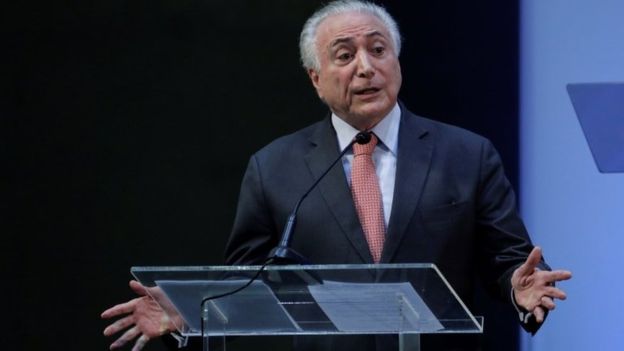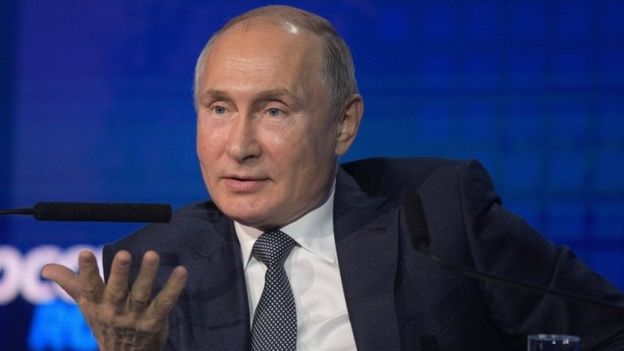
The most pressing issue at the G20 discussion table is the trade war between the United States and China
Exactly ten years ago, in November 2008, leading world leaders gathered in Washington, USA, to coordinate a response to the global financial crisis. It was the first meeting where the G20 – a group that brings together 19 major economies plus the European Union – went from a forum of finance ministers to a meeting of heads of state and government.
The cooperation between the main developed and emerging countries, materialized in commitment to measures to stimulate growth to the detriment of protectionist actions, is pointed out as fundamental to contain the enormous turbulence that began with the collapse of American banks. On returning to Brazil, then-President Luiz Inacio Lula da Silva said that the meeting changed “the logic of political decisions”.
Inequality, falling income and youth unemployment: what the new HDI report says about Brazil
Why the ‘gold visas’, very targeted by Brazilians, became the center of controversy in Portugal
“Finally, all countries have agreed that we need to take collective decisions to prevent a country from taking a position that could harm another country,” said the former president, who is now jailed by Operation Lava Jato .
A decade later, logic seems to have changed again. At a time when the nationalist and anti-globalist speech led by the American president, Donald Trump – and also revered by the future Brazilian agent, Jair Bolsonaro – is gaining momentum in the next two days in Argentina without the spirit of solidarity which marked its rise as the main geopolitical forum, overriding the narrower G7.
The role of Brazil in the group is also changing. While in 2008, the country emerged, together with the other BRICS members (Russia, India, China and South Africa) as a promise of locomotive for world recovery and had the charismatic leadership of Lula, the country now faces a long economic crisis and arrives at the summit with an unpopular and end-of-term president, Michel Temer.
The expectation is that the Brazilian president, who does not have relevant bilateral meetings on the agenda during the summit, confirmed only a conversation with Australian Prime Minister Scott Morrison and Singapore’s Lee Hsien Loong to participate by Argentina although the country does not integrate the G20. No leader took advantage of coming to Buenos Aires to also make an official visit to Brazil.
Bolsonaro, still recovering from the stab he took in September during the presidential campaign, did not heed the invitation to accompany Temer to Buenos Aires. There is also no prospect of the participation of the future foreign minister, Ernesto Araújo, who supports the trumpista ideology against “globalism” – seen by the Brazilian as a strategy of the left to suppress traditional national values that passes through the ideological control of multilateral bodies such as UN.
Commercial war
This time, the most urgent issue at the G20 discussion table is the trade war between the two largest economies in the world – the United States and China. The planned bilateral meeting between the presidents of the two countries, Trump and Xi Jinping, tends to overshadow the summit itself, although there is little hope that it will bring a solution to the rise in trade barriers.
The US – which has had America First as one of its campaign slogans – has since raised high taxes on Chinese imports, accusing the Asian country of adopting illegal trade practices and overtaking litigation of the World Trade Organization (WTO).

Temer will attend the summit as president unpopular and at the end of term
The US has already applied tariffs of about $ 250 billion on Chinese products and threatened to tax another $ 267 billion. China, for its part, has set tariffs on US goods worth a total of $ 110 billion.
The fear of economists around the world is that this dispute will eventually reduce exports and output in the world’s two largest economies, causing a global slowdown. The global effects on exchange rates and prices – due to higher prices of surplus products, as well as the devaluation of commodities due to the expectation of lower demand – are unpredictable.
The need for reform of the WTO will also be in the G20’s focus. The United States has blocked the appointment of new judges to the appeals body, the supreme court of trade disputes, and threatens to leave the organization.
“The situation of the G20 today is much more precarious. Trump represents an international vision that emphasizes competition,” says Professor of International Relations FGV Matias Spektor, analyzing the last decade.
“It is not clear what will be the performance of Brazil in the group under the leadership of Bolsonaro in the event of a new global economic crisis as a result of the commercial war: whether to align completely to the United States or adopt a more pragmatic position,” he notes.
Brexit and ‘climate’ among leaders
Spektor points out, however, that the problem is not only located in the United States and the growing tension with China. The UK, which then Prime Minister Gordon Brown played a key role in including emerging countries at the table of the financial crisis in 2008 and 2009, is now weakened under the leadership of Theresa May because of the implementation of the EU exit plan Brexit, approved in 2016.
Germany also loses leadership capacity in anticipation of a change of command – Angela Merkel, a German chancellor since 2005, has announced that she will not seek re-election in 2021 after her party has performed poorly in regional elections. It is possible that she left the command of the country even earlier.
There are still other sources of tension that must shake the mood in Buenos Aires. There is an expectation of a meeting between Trump and Saudi Crown Prince Mohammed bin Salman, a leader rejected by other Western powers after the assassination of Saudi journalist Jamal Khashoggi inside a Saudi diplomatic building in Turkey.
There may also be the first meeting after the assassination between the prince and the Turkish president, Recep

Trump meeting with Putin risks being canceled due to worsening crisis between Russia and Ukraine
The meeting between Trump and Russian President Vladimir Putin is at risk of being canceled due to the worsening crisis between Russia and Ukraine after Russian ships fired at Russian ships on the Crimean coast, a Ukrainian region annexed by Russia 2014.
“There is greater divergence in the G20 today because Trump is further away from the consensus that (former US presidents) Bush or Obama were, like Putin, Saudi Crown Prince Erdogan and Xi Jinping,” John Kirton, director of the G20 research group at the University of Toronto (Canada).
“In addition, in 2009, leaders faced a common, clear and present danger of a global financial and economic collapse. Today, they are dealing with smaller, slower issues such as trade, and yet they have not realized the existential danger now brought uncontrolled climate change, “he added.
‘Ready for the next fire’
Despite the difficulties faced by the G20, it retains enormous relevance in the global scenario. Formed by 19 countries – South Africa, Germany, Saudi Arabia, Argentina, Australia, Brazil, Canada, China, South Korea, France, India, Indonesia, Italy, Japan, Mexico, Russia, the United Kingdom and Turkey – plus the European Union, its members account for 85% of global economic output, two thirds of the world’s population and 75% of international trade.
For analysts heard by BBC News Brazil, even if there is no climate for broad consensus within the bloc, maintaining its active structure with the annual summits is critical to a rapid reaction in the event of major turbulence.
In the evaluation of the professor of the Institute of International Relations of USP Maria Antonieta Del Tedesco, keeping the channels of dialogue among the largest nations on the planet active is the main purpose of the G20 today.
She emphasizes that multilateral diplomatic dialogue is a slow process and therefore does not always produce concrete and visible results. She points out, for example, the importance of the Financial Stability Board, created in 2009 and still in business.
“At the multilateral level, the G20 is still the big news. There has been a loss of relative importance because of the political changes in the countries, but that does not mean that it is empty and serves no purpose,” he says.
For the teacher, however, there was a certain loss of focus of the group by embracing a very varied and wide range of agendas. Argentina, which has chaired the group over the last year, has set as its main themes the future of work, infrastructure for development and sustainable food.
Because of this diversification, the group started operating in two “tracks”: one for economic discussions, which are conducted by the finance ministers of the countries, and another for the other topics, coordinated by the so-called “Sherpas” (in the case of Brazil, this representative is always a diplomat).
Speaking earlier this month, Australian sherpa, David Gruen, made a defense of the group’s performance. Speaking at the Lowy Institute, he pointed out that after the financial crisis, the focus of the group changed “naturally” to long-term issues such as structural reforms and sustainable growth.
These are advances that “do not appear in the headlines, but that will make a concrete difference in the well-being of people around the world,” he argued.
According to Gruen, studies such as the one conducted by the US Brookings Institute, which heard dozens of officials involved in the G20, also show that the group is important for countries to better understand each other’s perspectives and know “who to call when it comes to crisis.”
“Of course, fire brigades are most useful when there is a fire. But they need to keep their equipment running in order – or, in the case of the G20, to maintain the organization’s relations and functioning – by the time the next fire breaks out,” he said.
source https://www.naijanews.com/2018/11/30/ten-years-after-union-against-crisis-g20-meets-weakened-by-antiglobalism/





0 Comments